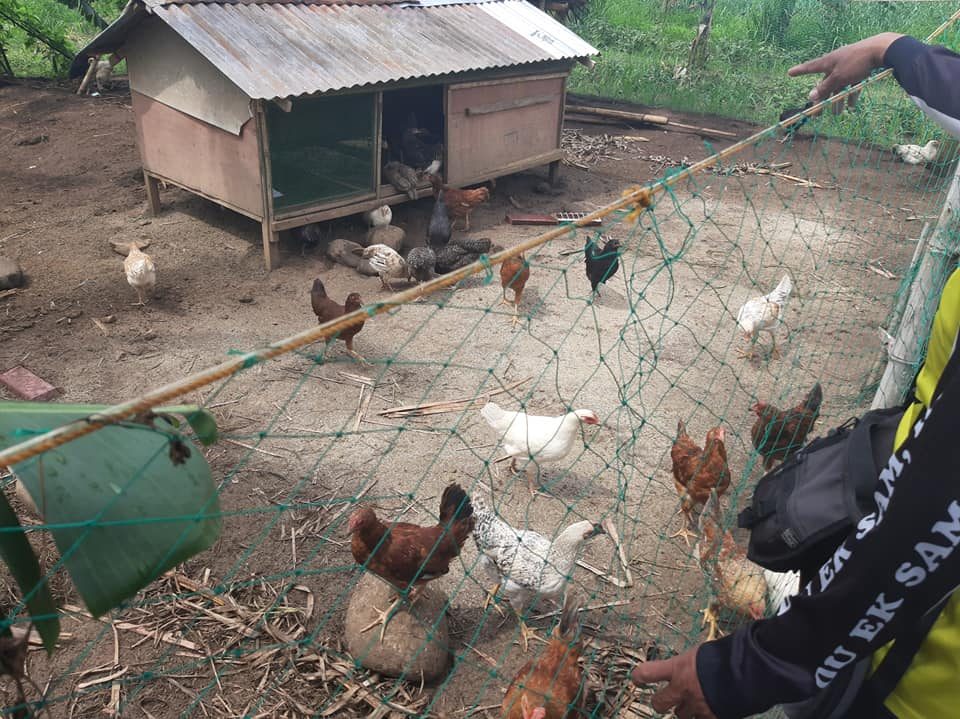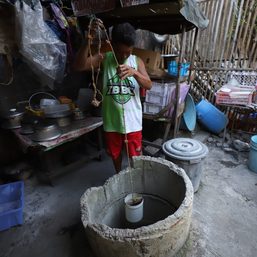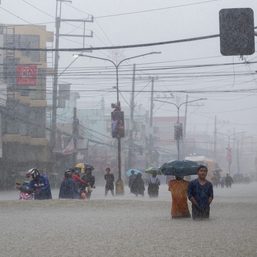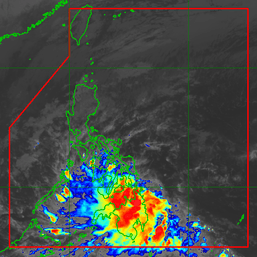SUMMARY
This is AI generated summarization, which may have errors. For context, always refer to the full article.

BACOLOD, Philippines – Typhoon Odette (Rai) killed at least 1.29 million broiler chickens in Negros Occidental as it whipped through the province in the early hours of December 17, the Provincial Veterinary Office (PVO) said on Thursday, December 30.
The agency’s final report estimated the cost of damage to poultry and livestock at P742.4 million.
Floods and strong winds affected 262 villages in 29 of the province’s 31 cities and municipalities, the PVO said.
Of the cost of damage, 57.50% or P426.7 million involved the deaths of livestock and poultry, while 42.50% or P315.7 million covered the destruction of physical structures like animal housing and facilities.
The PVO placed the value of 1.3 million dead broiler chickens at P192.6 million; 133,797 layers at P61.9 million; 16,206 gamefowl at P61.3 million; 6,860 swine heads at P70.7 million; 484 carabaos at P15.5 million; 333 cattle at P9.3 million; and 47,539 free-range chickens at P6.3 million.
Commercial farms sustained the highest damage at P207.3 million, followed by local government unit-owned farms at P58 million and backyard raisers at P26.8 million.
Two farms operated by the PVO – the Provincial Livestock Breeding Center and Dairy Farm in Barangay La Granja, La Carlota City, and the Negros First Ranch in Barangay Santa Rosa, Murcia – also incurred damage worth P10.3 million and P3.5 million, respectively.
Provincial Veterinarian Renante Decena told Rappler on Thursday that he expects a decrease in chicken supply in the next few weeks.
Aside from the typhoon damage, the lack of power in the aftermath of Odette also affected storage facilities, he said.
Big firms survive onslaught
Local chicken consumption in Negros Occidental, including its capital city Bacolod, is around 70,000 heads per day, said Decena.
The annual broiler production is more than 30 million, while monthly output is from 2.5 million to 3 million, he added.
Decena said Negros Occidental does not export broilers to other regions, as the current supply is only for local consumption.
Currently, the province’s remaining supply is from surplus inventory, he said, which could mean an increase in prices and demand after the holiday season.
However, Decena said big commercial integrators like San Miguel and Bounty are expected to expand their load to help increase the chicken population.
He said the two companies’ modern facilities withstood the wrath of the typhoon, unlike local commercial farms with structures made of light materials.
Decena said the recovery of these structures will take time because of capitalization needs.
Southern losses
The highest animal losses in Negros Occidental were reported in Pontevedra in the 4th District, with a value of P51.6 million, and Murcia in the 3rd District with P49 million.
The 4th District, the central part of the province, also incurred the highest cost of damage to animals and infrastructure at P138 million and P97.3 million, respectively.
The 6th District, the southern part of the province and the hardest hit by the typhoon, suffered animal deaths worth P78.1 million and damage to infrastructure worth P93.4 million.
Kabankalan City accounted for P23.1 million in animal losses, and P50.6 million in damage to structures.
Prices of broilers and layers in the 6th District have already gone up, Decena said.
Based on their latest price monitoring, one kilo of dressed chicken now costs P240 from the previous P150 in Kabankalan City, while the price of eggs reportedly increased by P.50 apiece.
A 60-day price freeze on basic commodities is in effect in Western Visayas and five other regions ravaged by Odette.
To boost poultry production in Negros Occidental, the provincial government will continue to disperse free-range chickens to farmers’ associations as part of its agricultural productivity and food sufficiency program, Decena said.
He said that native chickens, which incurred minimal damage from the typhoon, comprised 10% of the local market, though they are more costly than broilers, at P280 to P300 per kilo.
Free-range chickens or native chickens can freely roam around the farm and can feed on grasses, while broiler chickens are those that are caged and are only dependent on commercial feeds, Decena explained.
He said the district offices of the PVO have continued to extend technical assistance to the affected backyard farmers and raisers. – Rappler.com
Add a comment
How does this make you feel?










There are no comments yet. Add your comment to start the conversation.